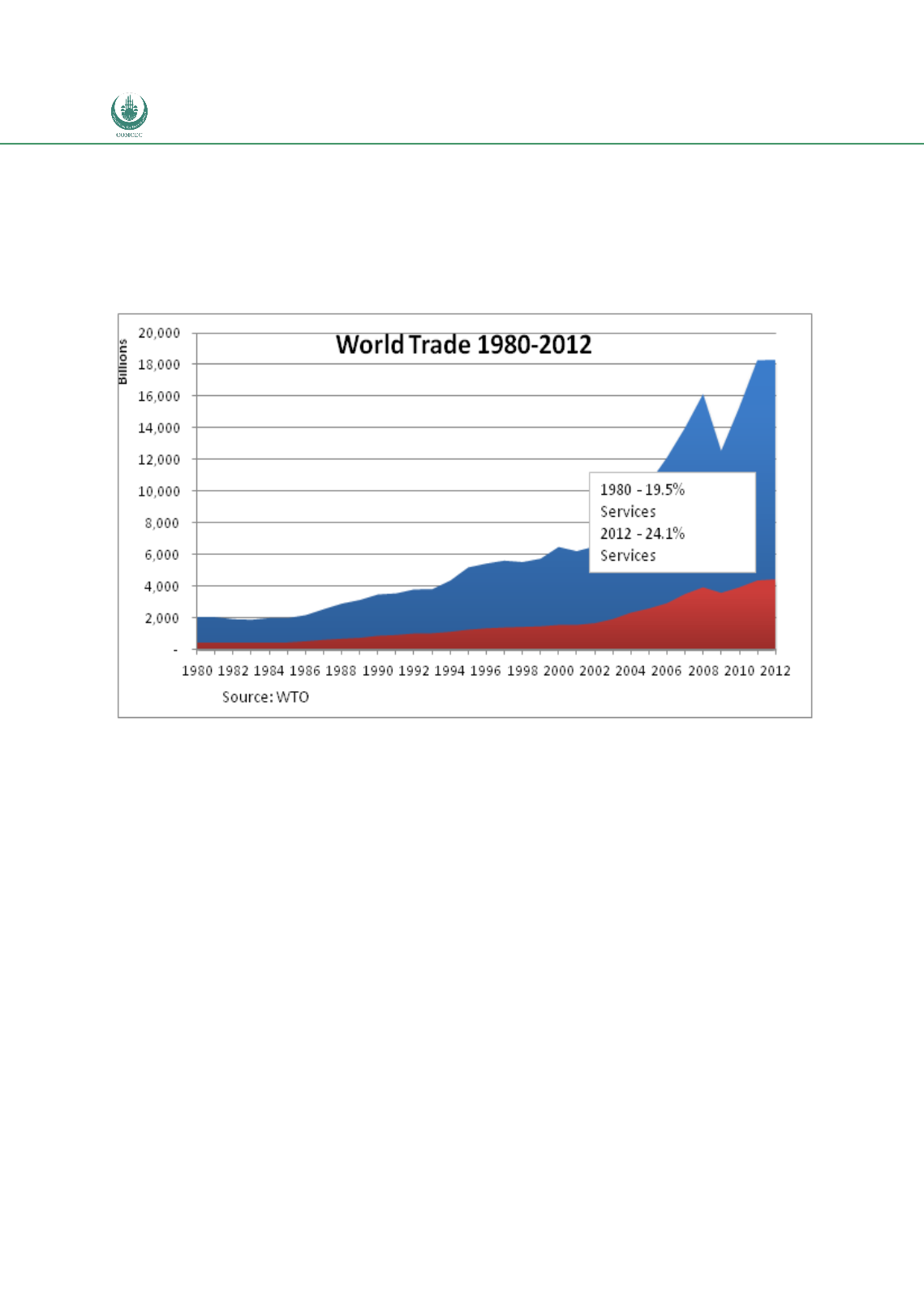

Preferential Trade Agreements and Trade Liberalization Efforts in the OIC Member States
With Special Emphasis on the TPS-OIC
50
consumed in the origin country. Many service sectors are associated with domestic activities
that traditionally are not considered to be reached by trade policy. Moreover, many service
sectors have historically been associated with high levels of government intervention and
regulations due to either their natural monopoly configuration (infrastructure or network
services) or of social importance (health and education).
As a result, this has made governments more reluctant to deregulate services leaving their
provision purely to market forces. Domestic regulations are therefore significant across
typically associated for example with competition policies, ownership or investment.
Nevertheless, technical changes in communications and in- formation technology that facilitate
and increase the scope of the provision of services as well as a general change in the regulation
of monopolies, emphasising the role of the market as disciplinary force, have encouraged trade
reform and a more open approach to trade in services.
The General Agreement on Trade in Services (GATS) establishes disciplines and provisions on
trade in services in the context of the WTO. This agreement is built around the principles of
transparency and predictability of rules and regulations, the introduction of disciplines
governing international transactions, and the promotion of progressive liberalization. In this
sense, many provisions applied to goods (such as the Most Favourable Nation principle) are
extended to services. At the same time, it defines special provisions applying, by the nature of
services, exclusively to services. One such example is that of National Treatment which
establishes the prohibition of discrimination against foreign suppliers. In this sense, Art.V of
GATS establishes disciplines and provisions for the establishment of bilateral or multilateral
agreements of liberalisation of trade in services. In general, it applies similar principles to that

















